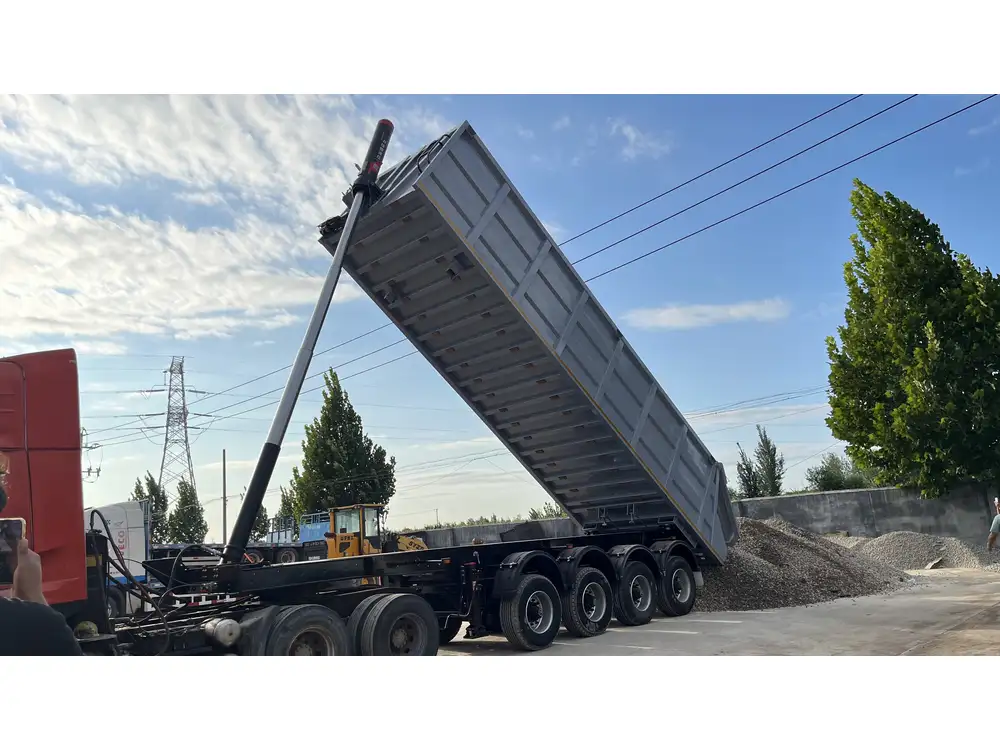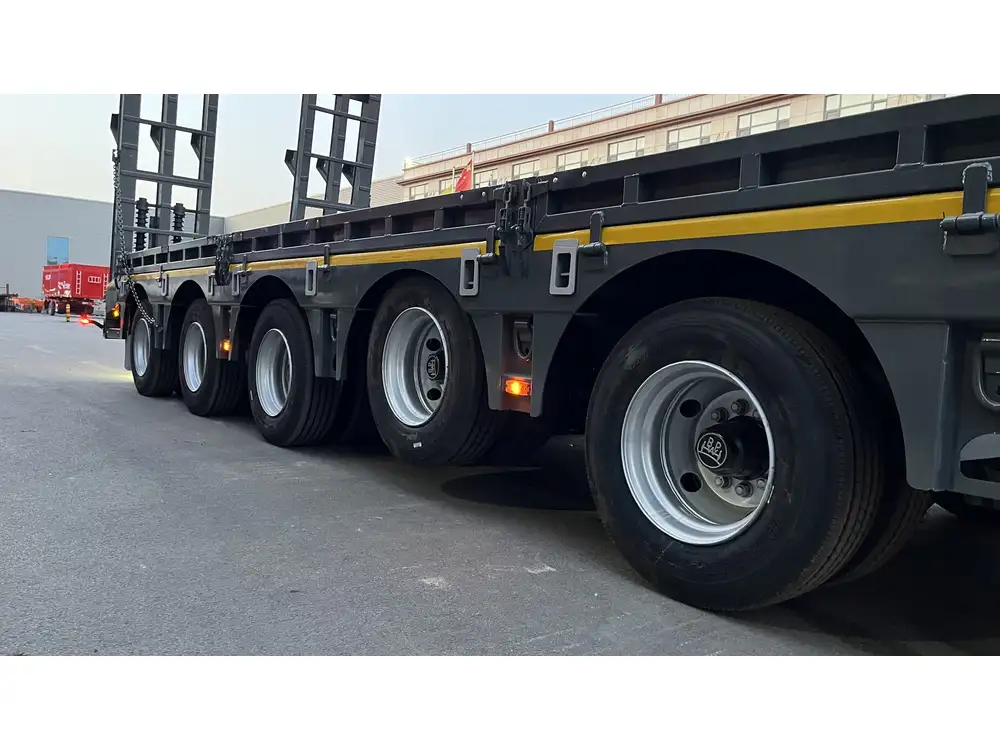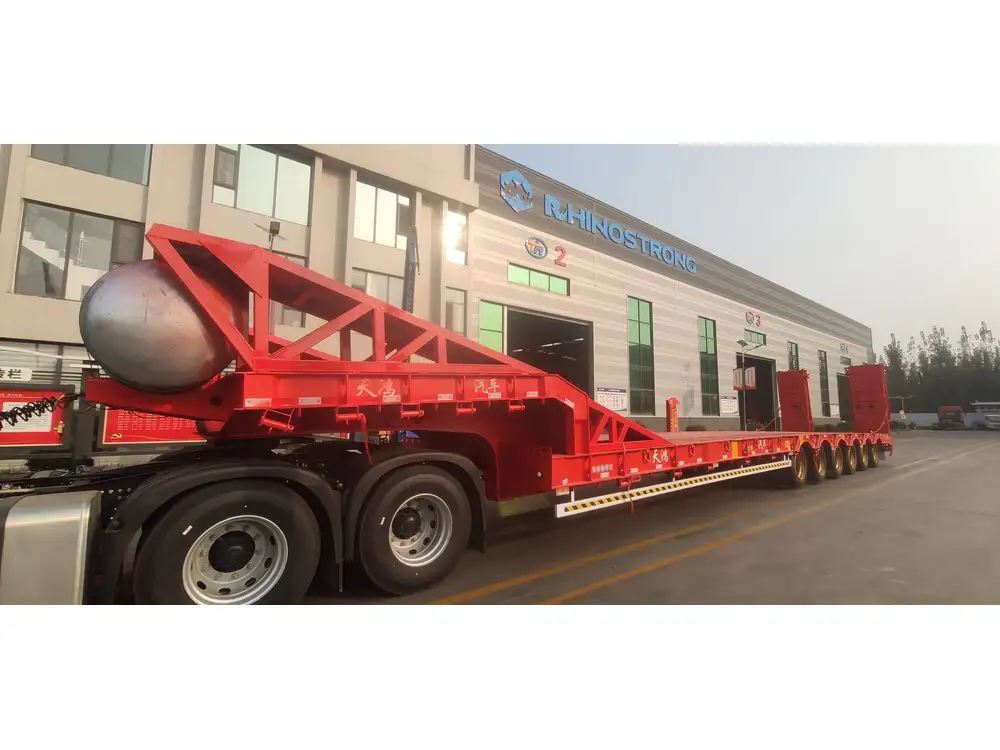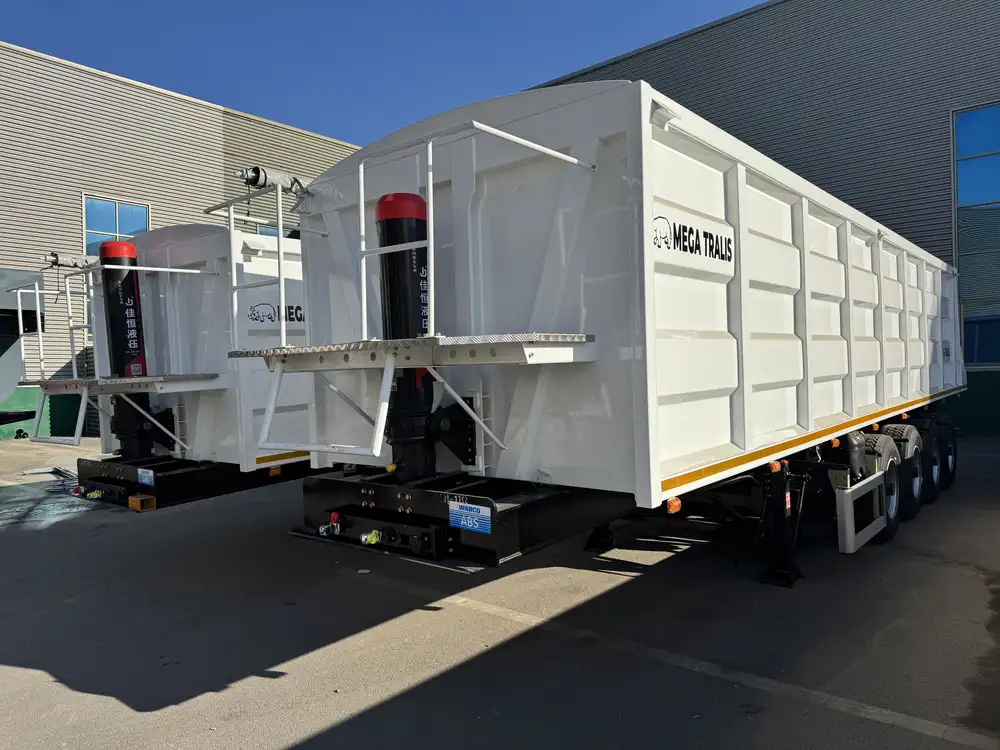Building a dump box trailer is a rewarding project that can significantly enhance your hauling capabilities, whether for personal use or in a business setting. A well-constructed dump trailer is not only functional but also a durable investment that can save you money in the long run. In this comprehensive guide, we will delve deep into every aspect of constructing a high-quality dump box trailer, providing you with all the necessary insights and step-by-step instructions.
Table of Contents
- Understanding Dump Box Trailers
- Designing Your Dump Box Trailer
- Materials Needed for Construction
- Step-by-Step Instructions to Build a Dump Box Trailer
- Safety Tips for Building Dump Box Trailers
- Common Problems and Solutions
- Maintenance Tips for Your Dump Box Trailer
- Conclusion: Maximizing the Utility of Your Dump Box Trailer
Understanding Dump Box Trailers
A dump box trailer is designed specifically for transporting loose materials, such as sand, gravel, debris, and landscaping materials. Unlike traditional flatbed trailers, dump trailers feature hydraulic systems that allow the dumping of loads at an angle, facilitating easier unloading and maneuvering of materials. Understanding the nuances of dump box trailers will help you appreciate their construction requirements and operational efficiencies.

Key Features of a Quality Dump Box Trailer
- Hydraulic Lifting Mechanism: Critical for effortless dumping of loads.
- Durable Construction: Heavy-duty materials to sustain repeated heavy loads.
- Versatile Dimensions: Offer various sizes to suit different hauling needs.
Designing Your Dump Box Trailer
The design phase is where functionality meets creativity. Before starting construction, you must have a clear plan that outlines size, shape, and the capacity of your dump box trailer.
Considerations in Trailer Design
- Weight Capacity: Ensure your trailer can haul the intended maximum weight.
- Size and Dimensions: Match your trailer’s dimensions to your towing vehicle.
- Type of Loads: Determine whether you need a standard or heavy-duty design based on what you plan to haul.

Materials Needed for Construction
Essential Materials
| Material | Purpose |
|---|---|
| Steel (for frame) | Provides structure and support |
| Plywood or Steel Sheets | Forms the dump box shell |
| Hydraulic Cylinder | Enables dumping functionality |
| Axles and Wheels | Provides mobility |
| Wiring and Battery | Powers the hydraulic system |
Tools Required
- Welding machine
- Angle grinder
- Drill and drill bits
- Socket set
- Measuring tape
- Safety gear (goggles, gloves)

Step-by-Step Instructions to Build a Dump Box Trailer
Building your dump box trailer involves careful planning and execution. Below, we outline the steps in detail.
Step 1: Planning and Design
Start with creating a blueprint that incorporates the dimensions and materials. Use CAD software if needed to visualize your design. Ensure that the hydraulic system fits seamlessly into your design.
Step 2: Prepare the Frame
Using steel, cut the pieces for your frame according to your dimensions. Assemble the frame using welding or bolting techniques to guarantee strength. Reinforce corners and joints for added stability.

Step 3: Constructing the Dump Box
Attach plywood or steel sheets to the frame to create the dump box. Ensure the sides are high enough to contain loads securely. Reinforce the edges by using angle brackets for durability.
Step 4: Installing the Hydraulic System
Install the hydraulic cylinder according to the manufacturer’s instructions. Connect the hydraulic pump to the cylinder and ensure that the wiring for the battery and controls is set up efficiently. Test the system to confirm operational efficacy.
Step 5: Painting and Finishing Touches
Once assembled, paint the trailer with a rust-resistant primer and topcoat to protect against the elements. Add reflective tape or lights for safety during nighttime operations.

Safety Tips for Building Dump Box Trailers
When building your dump box trailer, safety is paramount. Here are several vital tips to consider:
- Personal Protective Equipment (PPE): Always wear safety goggles, gloves, and steel-toed boots when working with heavy materials.
- Stable Work Environment: Ensure your workspace is level and clear of any hazards.
- Lift with Caution: Use appropriate lifting equipment and never attempt to lift heavy components alone.
Common Problems and Solutions
Problem: Uneven Load Distribution
Solution: Ensure that the load is spread evenly across the trailer to prevent tipping or instability during transport.

Problem: Hydraulic Failures
Solution: Regularly check fluid levels and the condition of hydraulic components. Replace worn parts promptly.
Problem: Tire Wear and Blowouts
Solution: Inspect tires before each use, maintaining proper inflation and checking for any visible damage.
Maintenance Tips for Your Dump Box Trailer
To extend the life of your dump box trailer, regular maintenance is essential. Here are key tips:

Routine Maintenance Checklist
- Inspect the Hydraulic System: Check for leaks and ensure fluid levels are adequate.
- Tire Checks: Regularly monitor tire pressure and tread wear.
- Frame Inspection: Look for signs of rust or structural weaknesses, particularly after heavy use.
- Brake Checks: Test brakes for responsiveness and inspect brake fluid levels regularly.
Conclusion: Maximizing the Utility of Your Dump Box Trailer
Creating a dump box trailer is achievable with the right resources, design, and maintenance. By following this guide, you are not just building a trailer; you are investing in versatility and efficiency for numerous hauling tasks ahead. From landscaping to construction projects, a well-built dump box trailer will serve you faithfully when constructed safely and maintained diligently. Whether for personal use or as a business asset, the benefits of your dump box trailer will be profound, enhancing your operational capabilities and productivity.
By staying informed on proper maintenance and safety measures, you’re ensuring that your investment remains reliable, functional, and valuable for many years to come. Happy building!



